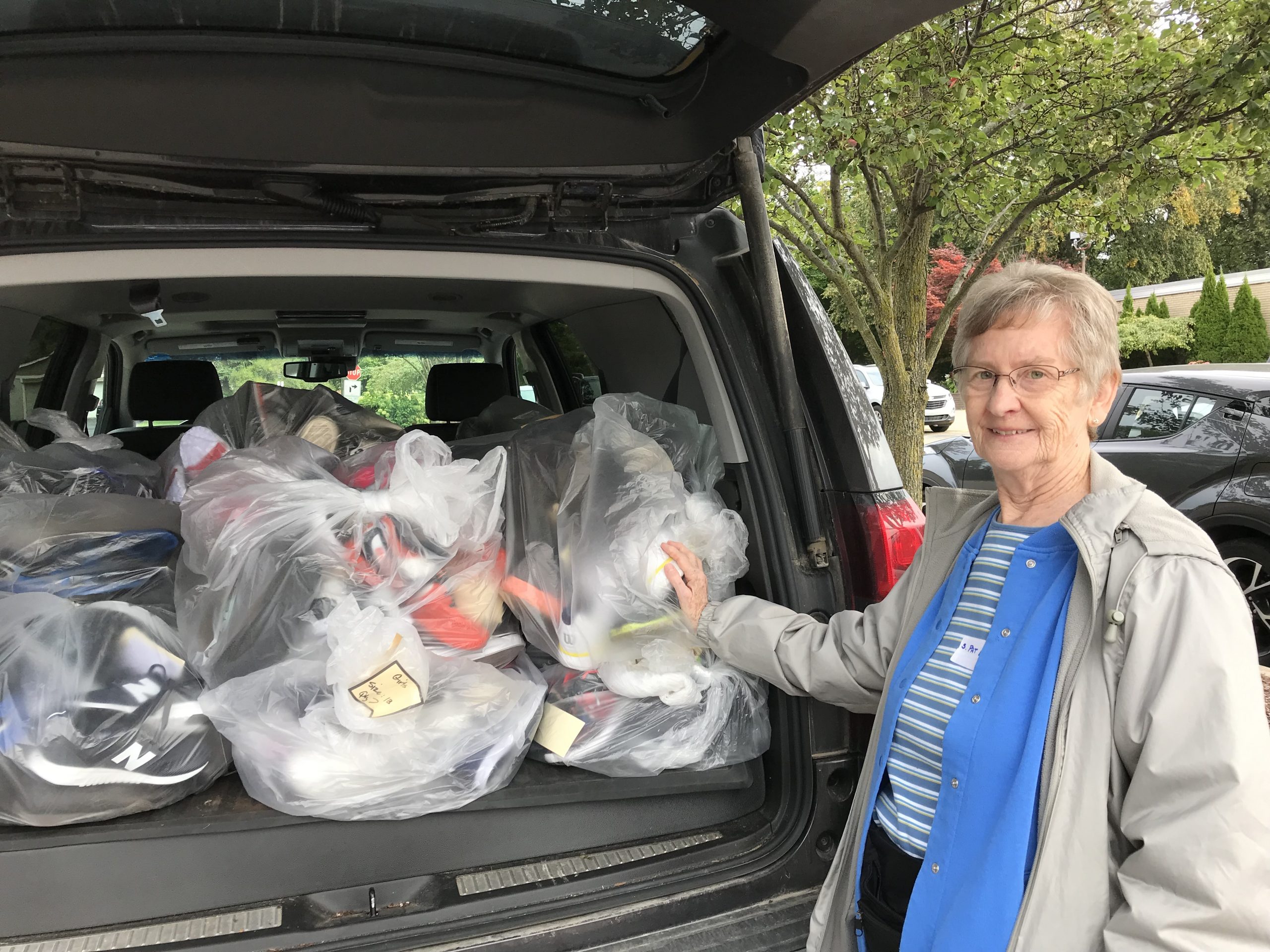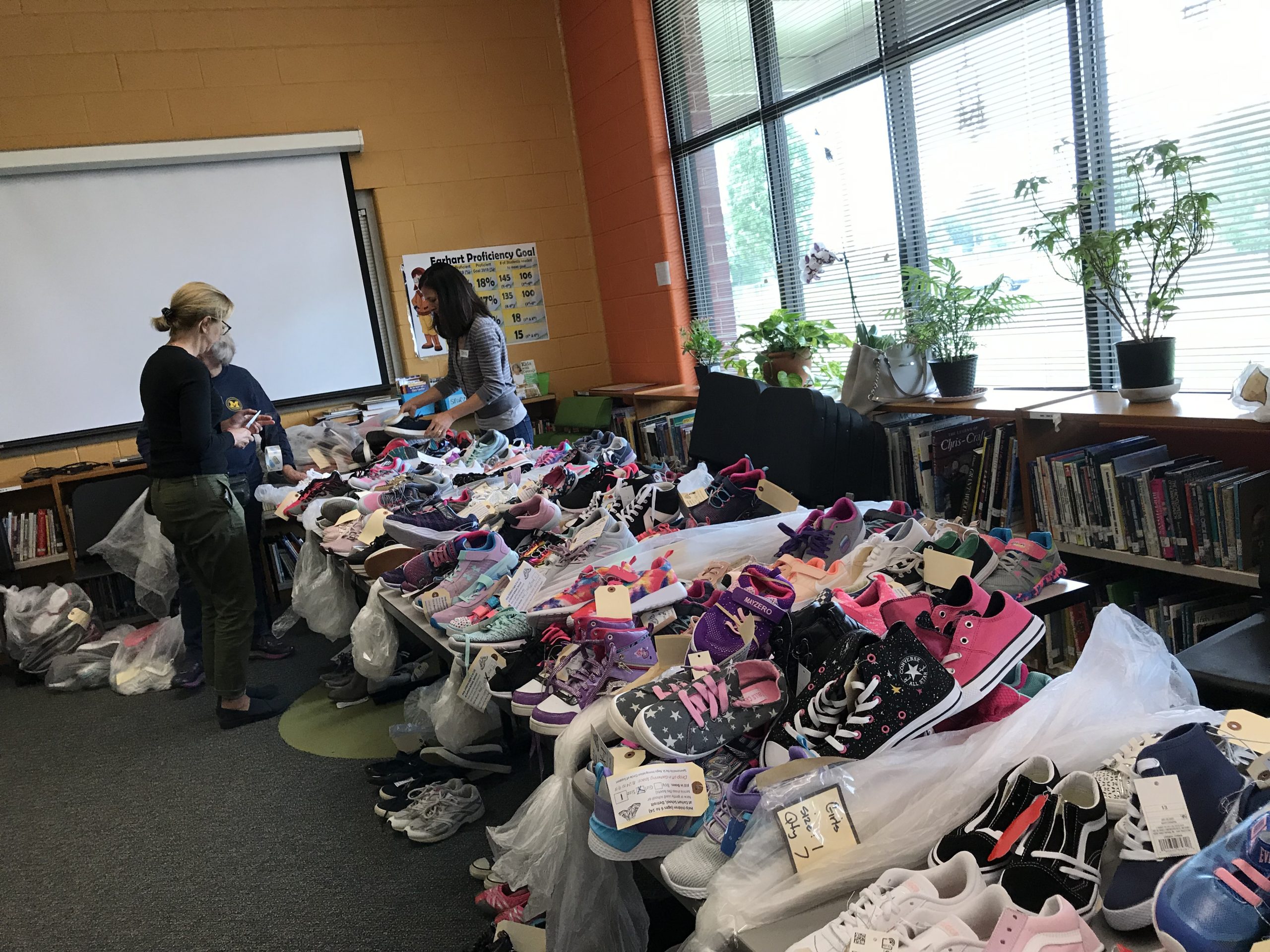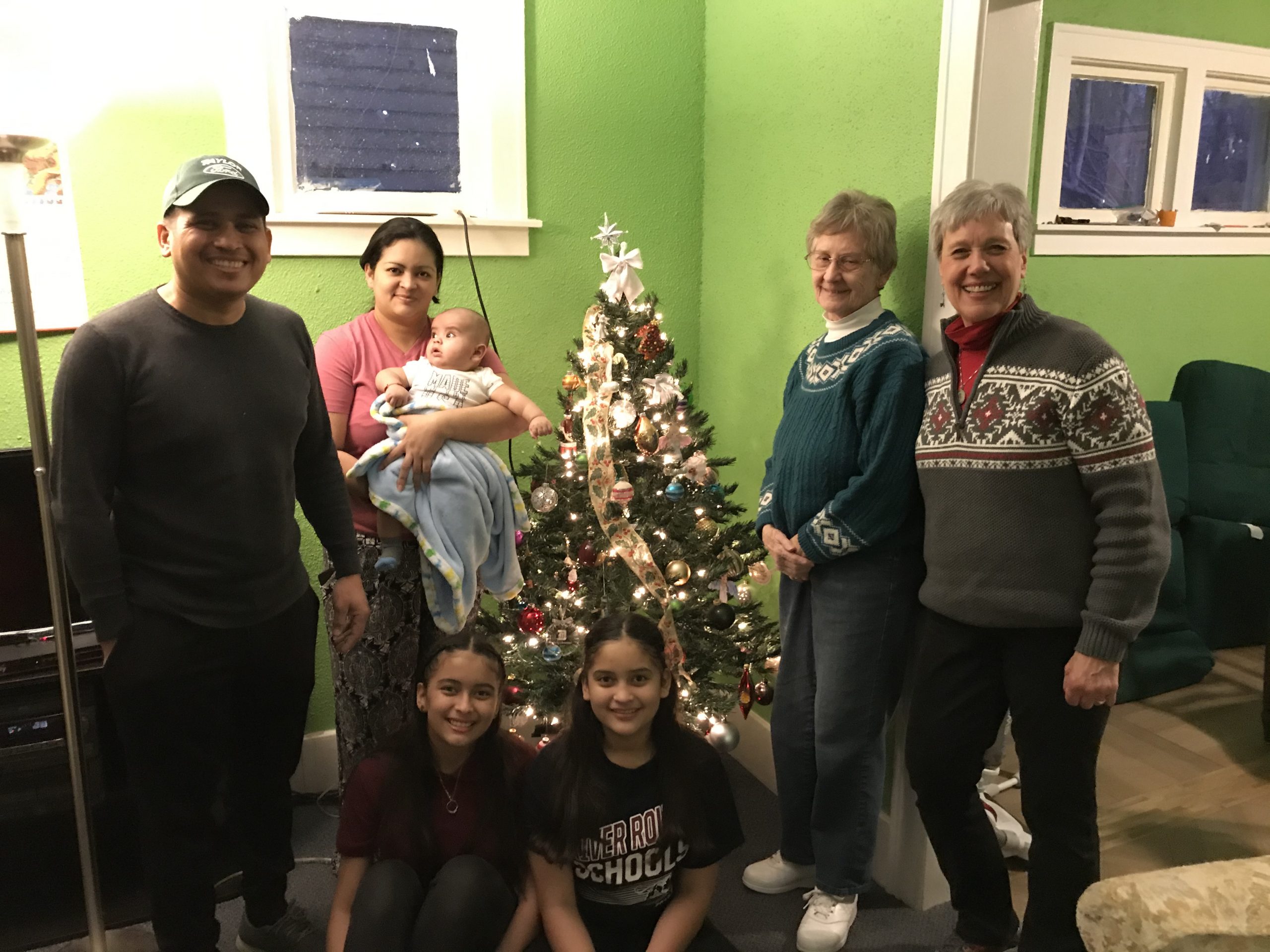A Ministry of Service to Immigrants

By Sister Pat Lamb
Ministering to our immigrant sisters and brothers at the U.S.–Mexico border never called to me. Instead, my experience in this ministry began more than 30 years ago in Grand Rapids, Michigan. It was during the 1986 time of amnesty, and we set up a site at our church, with an attorney, to assist those seeking citizenship. Those eight years in Grand Rapids kept me in touch with many of the issues the migrant workers we served during the summer season were facing. Mass at our church was in Spanish, as were the summer liturgies with the migrants near their camps. We helped the workers settle for the short while they were there, and over the years it became like welcoming old friends or family back when they returned each summer.

It was not until my years in Holland, Michigan, that I began to meet undocumented immigrants from Mexico and Central America. I soon learned that they had incredible stories of troubled, often violent situations in their beloved home countries that left them with no other option but to pack up their families and depart on foot, usually in the night. So much of their journeys were through unwelcoming situations, with little food or water and no safe place to rest. Eventually, they would arrive at the U.S. border, at what they thought would be a place of hope and a promise of welcome.
Crossing our border over the years has almost always been dangerous, often life-threatening, fraught with financial bribes paid to coyotes who may not deliver them to safety. In the years before our current administration, there were many crossing points and various border towns that were staging areas for crossing. Those fortunate enough to make it across had many more hurdles to jump. The Arizona desert can be unforgiving, with bandits preying on immigrants—robbing and abusing them, and sexually assaulting the women—leaving them to find their way. The Border Patrol scanned the well-worn routes and then ended these courageous attempts. What was always so amazing to me was how undaunted people were to begin again. They did this always with the faith and expectation that with this attempt, they will reach a place of welcome. What they were leaving was no longer sustainable. Their deep faith and trust in God led them to believe that a better life was possible, somewhere in the United States.
For 21 years, I lived and ministered in the area known as the fruit belt of western Michigan, where migrant workers were needed and welcomed to help with the harvest. Some of their stories remain with me to this day.
Miguel’s is one that still haunts me. His family lived in a small village in Mexico that gang members were beginning to dominate. One evening, a gang leader put a gun to Miguel’s head and said he would be coming for his 13-year-old daughter in the morning. That night, Miguel packed up his family of five and left on foot for “el norte.”
Maria’s story also stays with me. She lived in Michigan with her husband of 10 years and their four children, but she was undocumented. Working with an excellent attorney, it was determined that she must return to Mexico, wait for legal documents—in effect, get in line—then cross the border legally to complete her path to citizenship. What we thought would take a few weeks turned into an 11-month detention. You can only imagine the joy of her children when they greeted their mother at the airport! Some six years later, she and her husband, both very hard-working people, purchased a home and invited me for a house blessing. Reflecting on what they had experienced made this a moment over-the-top with happiness.
I now find myself at a time of retirement, but my love and commitment to immigrants continues to call me to service. In Detroit, we have formed a group called Strangers No Longer. Parishes organize into Circles of Support to reach out to the immigrant population. Some of our group from St. Regis visited an inner-city school whose student body is made up largely of immigrants; fifty percent of these children have experienced one or both parents being deported.

After a meeting with the school social worker, we observed that many of the children were in need of shoes. Immediately, we knew this was a project we could initiate: a parish shoe drive. Within two months, we had collected 646 pairs of new shoes. The school let us set up our temporary “shoe store” one day, organized by size, and we were open for business. What a delight it was to measure the children’s little feet, walk with them to find their sizes and then let them select their own pairs of brand-new shoes. After trying them on, they almost danced with excitement!
One day, the program director of Strangers No Longer asked if I would accompany a woman to immigration court, where she planned to request asylum. Thus began a most endearing relationship. After both she and her husband received their immigration status, our group helped them set up their home and navigate the many services available to them with a City of Detroit ID card. When Christmas time came and we learned that yes, a tree and presents were very much a part of their tradition, too, we made it happen!

Over time, as their trust in us grew, we would come to know their story. It included the now-familiar tale of a life-threatening situation and a nighttime exit by foot, as the family of four traveled 2,100 miles from Honduras. They were part of an early caravan that came north with great determination. Finally reaching the border, they claimed asylum and were held in cages. In time, they were released to a cousin in Detroit, which is where we met.
And this story continues. A story of mercy sought and found, of shoes and court dates and Christmas trees. Of the blessing it has been to live out my Mercy commitment to respond to the cries of our suffering world right here in Michigan—el norte—serving immigrants whose courage has taught me so much about faith and hope and love.